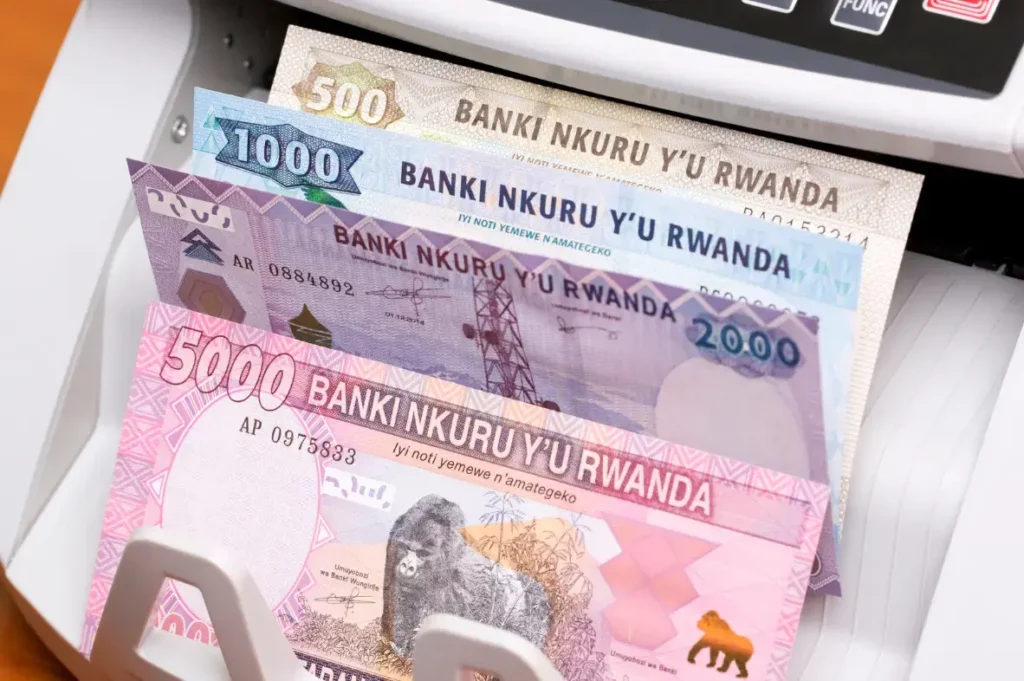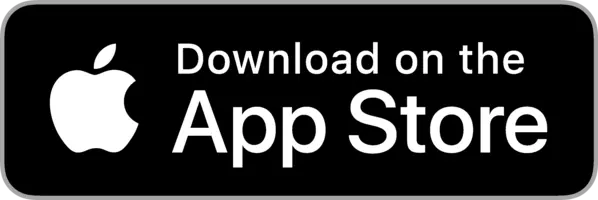Rwanda’s breathtaking landscapes, vibrant culture, and remarkable wildlife experiences make it a unique travel destination, where knowing how to handle money ensures a seamless trip. Whether you’re trekking to see mountain gorillas, exploring Kigali’s modern cityscape, or visiting the stunning Lake Kivu, this guide covers everything you need to know – what currency to bring, the best ways to get money and currency in Rwanda (Rwandan Franc (RWF)), cash safety tips, and essential dos and don’ts. With these insights, you’ll avoid unnecessary fees and enjoy Rwanda’s beauty and hospitality without financial worries.
How to pay in Rwanda – cash or card?
In Rwanda, cash remains a common method of payment. There is a growing trend towards digital transactions, particularly through mobile money services. However, for tourists cash remains most convenient to transact in.
You can use cash for:
Public Transportation: Buses and local taxis (commonly known as moto-taxis) primarily operate on cash payments.
Local Markets and Street Vendors: Purchases at traditional markets and street stalls are predominantly cash-based.
Small Businesses: Many small or family-run shops and eateries prefer cash transactions.
Tips and Gratuities: It’s customary to tip in cash for services such as dining, tour guides, and hotel staff.
Rural Areas: In less urbanized regions, electronic payment facilities may be limited, making cash essential.
You can use card for:
Hotels: Major hotels, especially in urban and tourist areas, accept credit and debit cards.
Restaurants and Cafés: Upscale dining establishments in cities may facilitate card payments.
Retail Stores: Some supermarkets and branded stores in larger cities accept cards, but it’s advisable to confirm beforehand.
Car Rentals and Travel Agencies: Established agencies typically offer card payment options.
Online Bookings: Reservations for flights, hotels, and tours can usually be made using cards.
What’s the best currency to take to Rwanda
Rwandan Franc (RWF) is typically the best currency to take if you are traveling to Rwanda. Paying or withdrawing cash in the local currency comes with the least amount of fees, sometimes fee-free too.
While US Dollars are widely accepted, especially in the tourism sector, relying solely on them may lead to unfavorable exchange rates or limited acceptance in local markets. Therefore, it’s advisable to pay in RWF to avoid losing money.
Euros or Pounds are not widely accepted here.
Where to get currency in Rwanda
There are 3 main ways to get cash in Rwanda. They are:
ATMs, or
Currency exchange, or
Money transfer & local pick-up
Types of cards to swipe in Rwanda
Establishments in Rwanda with POS machines readily accept Visa and Mastercards for swiping. You might also find some places that accept Amex and other cards, albeit less frequently.
Types of cards at ATMs in Rwanda
If you’re withdrawing money in Rwanda from an ATM, ATMs commonly accept Visa, Mastercard, Maestro, Plus, Cirrus cards. Note that some ATMs accept only Visa cards, so carry a VISA card at least when you travel. Some of them accept American Express, Diners, UnionPay cards. ATMs usually do not accept others like JCB, Discover and Rupay cards.
Should I exchange currency before travelling to Rwanda
Bringing a small amount of Rwandan Franc (RWF) before traveling can be useful for immediate expenses like taxis, tips, and small purchases. However, exchange rates outside Rwanda are often poor, and most foreign banks do not stock RWF, making it difficult to obtain in advance.
Withdrawing RWF from ATMs in Rwanda is the most convenient option, as ATMs are available in airports, cities, and some tourist areas. Most ATMs accept Visa and Mastercard, but Cirrus, Plus, and Maestro cards may have limited acceptance. Always check with your bank for international withdrawal fees.
It’s best to exchange money in Rwanda at banks or authorized exchange bureaus, which offer better rates than airports or hotels. If you need local cash upon arrival, exchange only a small amount at the airport, as rates are less favorable.
Carrying a mix of cash and cards is recommended. If bringing USD, EUR, or GBP, they can be exchanged easily in Rwanda. USD bills should be in good condition and issued after 2009, as older or damaged notes may be rejected. Paying in RWF ensures the best value, as foreign currency is not widely accepted in local transactions.
Where to withdraw money in Rwanda
You can withdraw money in Rwanda at leading bank ATMs in the country. The best ATMs for foreigners to use in Rwanda are those owned by popular banks such as:
Equity Bank,
BPR Bank,
Ecobank,
NCBA Bank,
Bank of Kigali, and
Bank of Africa.
There are other banks with ATMs that also accept international debit and credit cards.
There are no known Global ATM Alliance member banks or All Points network banks in Rwanda.
Where to exchange currency in Rwanda
You can exchange currency in Rwanda at licensed exchange bureaus or banks.
Currency Exchange Offices: In Rwanda, currency exchange offices are commonly referred to as Forex Bureaus. These are widely available in tourist areas, shopping centers, and airports. Notable providers include Forex Bureau Kigali, Alpha Forex Bureau and La Fontaine Forex Bureau.
Banks: Major banks such as Bank of Kigali, I&M Bank Rwanda, and Equity Bank Rwanda offer currency exchange services. These banks have branches throughout cities, providing reliable services. Operating hours are typically from 8:00 AM to 5:00 PM on weekdays, with some branches open on Saturdays until noon.
You can find good currency exchanges using the ATM Fee Saver app – it will guide you to the nearest currency exchange on the map. The app helps you with forex places in 100+ countries, including Rwanda.
Avoid Airport Exchanges and no-fee exchange offices: Currency exchange services at airports often have less favorable rates and higher fees. It’s generally better to exchange money in the city for better rates and lower charges.
Is carrying cash in Rwanda safe?
Carrying cash in Rwanda is relatively safe, but vigilance is necessary. While violent crime is rare, incidents like burglary and armed robbery have been reported, particularly in Kigali. Carry minimal cash and rely on electronic payments where possible. Always be aware of your surroundings, avoid isolated areas, especially after dark, and if confronted, do not resist handing over valuables.
Is it better to use debit or credit cards or pay by cash in Rwanda
Use a card if it is fee-free i.e. your bank does not charge any fees to swipe the card, when the merchant / POS also does not impose any extra charge to use a card, you need to use the insurance of the card, don’t want to block cash of large purchases and card’s swipe fees are lower than withdrawal fees.
Pay by cash by withdrawing cash from ATM or exchanging currency where – fees on ATM withdrawals are lesser than fees on swiping cards, you don’t want to leave any digital footprint of your expenses, it is convenient and easier to conduct transactions.











